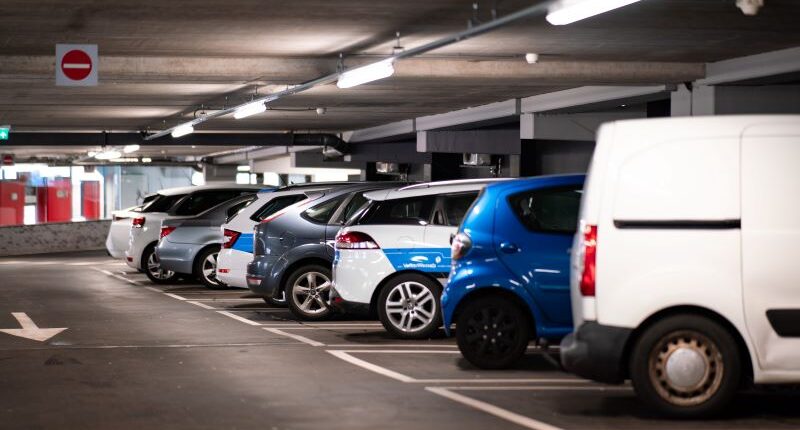- Experts are calling for planning policy to ‘unbundle’ parking spaces from apartments
- This gives people the choice to own or rent parking spaces in line with their needs
- Unbundling will contribute to reduced housing costs and urban street parking woes
A new study led by RMIT University in collaboration with the University of Western Australia, found 20 per cent of more than 1,300 apartment residents across Melbourne, Sydney and Perth had too much allocated parking, while 14 per cent did not have enough.
The study addressed the fact that in planning new apartment developments, off-street car parking provision is frequently raised as a key concern. However, there has been little understanding of the adequacy of off-street car parking for individual apartment households.
Lead researcher Dr Chris De Gruyter from RMIT’s Centre for Urban Research said they set out to assess the adequacy of off-street parking for apartment households.
The research found that two thirds of households owned the same number of cars as their allocated parking spots. However, 20 per cent of households had too much allocated parking, while 14 per cent did not have enough.
De Gruyter said that in terms of off-site parking for apartments, the imbalance reflected residents not having a choice in how many parking spots they needed when renting or buying an apartment.
Fair allocations mean oversupply in Vic
In areas of metropolitan Melbourne with lots of higher-density housing developments, car parking provision is a common cause of local disputes and appeals against planning proposals.
To address these concerns, minimum car parking requirements exist under the Victoria Planning Provisions (VPP) – one parking space for every one or two bedroom apartment, two spaces for three or more bedrooms and a visitor space for every five apartments. But often these standards don’t match resident car ownership and transport demands, leading to inefficient use of land and higher housing prices.
RMIT’s urban and transport expert De Gruyter said, “We found in our study that people living in larger apartments tend to have an oversupply of parking because of this policy, which means they’re paying for a space they’re not using.
De Gruyter said 13.4% of the surveyed households did not own a car but most were still allocated a parking space.
With each parking space worth up to $100,000, he estimated the price of unused off-site parking is costing residents more than $6 billion.
De Gruyter said, “This oversupply is not just an inefficient use of space, it is exacerbating housing affordability issues.
“Meanwhile, apartment households with an undersupply of parking are forced to park on the street, competing with visitors in the area.
“It is very clear that there is actually plenty of apartment parking – it’s just allocated incorrectly,” he said.

Unbundling for more choice
De Gruyter is calling for state and local governments to allow for unbundled parking in planning policy to help balance the over and undersupply of off-site parking.
He said unbundling parking was not about taking away parking from residents – it was about giving people the choice to own or rent parking spaces in line with their needs: “We can choose the number of bedrooms we want in our homes, yet we have no say in how much parking we need.
“We want people to have the option to choose not to have parking instead of it being imposed on them. Similarly, those who wish to have additional parking can have this,” he said.
Unbundled on the rise
Unbundled off-street parking in apartment buildings is still uncommon in Australia but can be seen in several newer complexes, such as Melbourne Square, Indi City Sydney and Arklife in Brisbane.
De Gruyter said it was promising to see the renewed Arden precinct in North Melbourne introduce a planning policy to facilitate unbundled parking for their new buildings: “Unbundled parking is going to help with housing affordability, reduce car use and on-street parking issues.
“We’re also going to see better health for residents as there will be more physical activity due to more public transport use, and better air quality from less car use,” he said.
But waiting for the market alone to bring this change would be too slow, said De Gruyter, and state and local government had an important role to play.
The urban planning experts suggested that in addition to unbundling parking, planning should include providing ‘right-sized’ car and bicycle storage in high-density housing and setting non-car travel targets by building alternative transport infrastructure and integrating transport infrastructure in new precincts.








